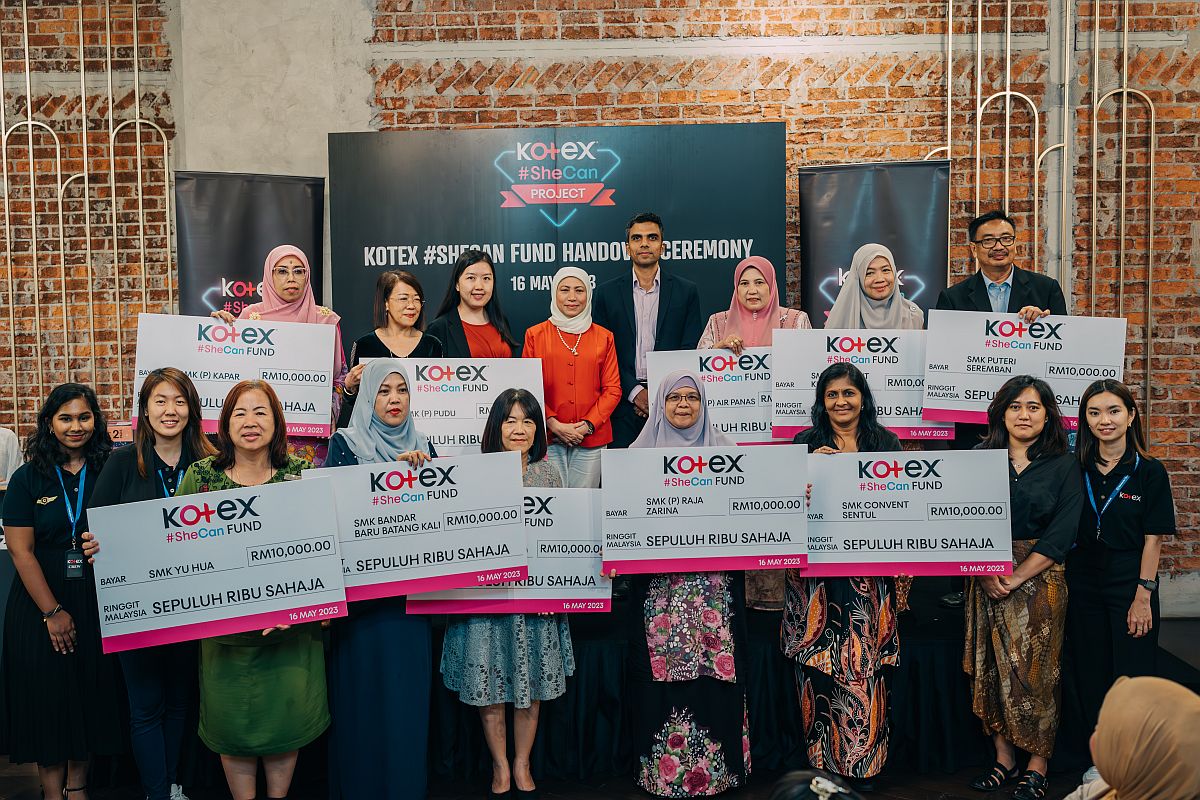KUALA LUMPUR, May 18 – Ten schools were recently awarded RM10,000 each by Kotex in recognition of their teachers’ efforts in helping to raise awareness on menstrual hygiene and management in their schools.
The event was officiated by Nancy Shukri, Minister of Women, Family and Community Development, who said in her speech that she was drawn to the programme as it seeks to eradicate period stigma and taboo and empower women to pursue knowledge and skills that will enable them to contribute to society in meaningful ways.
“We must recognise the mental struggle the girls are facing, the potential impact to her confidence level and her attendance not just in school, but the ability to fully participate in activities and pursue her goals without being held back by her period,” said Nancy.
“It is 2023 and Malaysia is quickly moving towards becoming a developed nation. In order for us to realise our full potential, we simply cannot afford for girls and women to be left behind,” she added.
The minister pointed out that Malaysia has a population of 33.57 million, of which 15.7 million are females. “This means that close to 50 per cent of the human resources in Malaysia are women.”
Nancy said it makes good socio-economic sense to close the gender gap between men and women and focus on building their capacity to be productive individuals.
“Just like a bird that needs both its wings to be equal in strength to soar high, progress is not truly possible if almost half of the population is held back due to societal taboos and something biological like period,” she explained.
Arvind Iyer, marketing director of Kimberly-Clark Malaysia said last year a study conducted by Kotex on period poverty and stigma found that among 746 girls aged between 10 and 24, more than half wanted to skip school all the time or at times when menstruating.
Some 68 per cent still believed menstruation to be a taboo subject, and past anecdotal studies alluded towards women being held back by their period for fear of being teased.
Teachers from 129 schools nationwide participated in the Kotex She Can Fund competition, which was established in 2018 to reward programmes and ideas that empower women and enable them to pursue their goals without being held back by their periods.
The grants awarded will be used for various initiatives to enhance academic and emotional resilience among girls, according to Arvind.
“These initiatives include workshops and talks to build physical, emotional and intellectual self-discipline and confidence, as well as to upgrade school amenities such as counselling rooms, knowledge portals and toilets.”
He added that teachers also worked with Kotex to facilitate their students’ participation in the interactive Kotex She Can Project menstrual health management education portal, which is approved by the Ministry of Education and endorsed by the National Population and Family Planning Board.
“This menstrual hygiene education programme is so critical in helping young women understand how periods are tied to reproductive health in a scientific manner and the changes that would occur to their bodies,” said Arvind.
“Additionally, we want them to also be aware of the implications of unsanitary practices and how it can lead to infections and even broader health and environmental risks to the community.”












